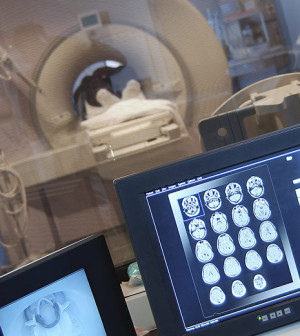- Could Your Grocery Store Meat Be Causing Recurring UTIs?
- Are You Making This Expensive Thermostat Error This Winter?
- Recognizing the Signs of Hypothyroidism
- 10 Strategies to Overcome Insomnia
- Could Artificial Sweeteners Be Aging the Brain Faster?
- Techniques for Soothing Your Nervous System
- Does the Water in Your House Smell Funny? Here’s Why
- Can a Daily Dose of Apple Cider Vinegar Actually Aid Weight Loss?
- 6 Health Beverages That Can Actually Spike Your Blood Sugar
- Treatment Options for Social Anxiety Disorder
Health Highlights: Feb. 26, 2015


Here are some of the latest health and medical news developments, compiled by the editors of HealthDay:
Painkiller Abuse Linked to HIV Outbreak in Indiana
Addicts’ use of a powerful painkiller is driving a large HIV outbreak in Indiana, according to health officials.
Twenty-six new cases of HIV have been confirmed since mid-December, and there have been another four suspected cases. The outbreak is centered in five counties near Indiana’s border with Kentucky, CBS News reported.
Most of the cases are linked by addicts using tainted needles to inject the prescription painkiller opana. Sexual transmission has been identified as the cause of some cases.
“We regularly investigate cases of HIV/AIDS, but this is the largest outbreak we have experienced,” said Amy Reel, of the state’s department of health, CBS News reported.
“It’s also unique in that it’s primarily being transmitted through injection drug use,” she added.
—–
Concerns Raised About Anesthesia Use in Young Children
There is growing evidence that general anesthesia may harm brain development in babies and young children, according to five experts who called for more research into the issue.
There is a “heightened level of concern” about possible risks, the experts wrote in an article published Wednesday in the New England Journal of Medicine.
They said data from animal studies is “compelling” and added that “parents and care providers should be made aware of the potential risks that anesthetics pose to the developing brain,” The New York Times reported.
When considering surgery for a child, parents and doctors need to weigh its urgency, particularly in patients younger than 3 years, the authors wrote.
Each year in the United States, about one million children younger than 4 years have surgery with general anesthesia, according to the Food and Drug Administration.
There is no firm evidence that general anesthesia has harmed children. Concerns are based on studies in young monkeys and other animals showing that widely-used anesthetics and sedatives can kill brain cells, impede learning and memory and trigger behavior problems, The Times reported.
Also, studies in children identified a possible link between learning problems and multiple — though not single — exposures to anesthesia early in life.
“On the one hand, we don’t want to overstate the risk, because we don’t know what the risk is, if there is a risk,” said Dr. Randall Flick, a pediatric anesthesiologist and director of Mayo Clinic Children’s Center in Rochester, Minn., The Times reported.
“On the other hand, we want to make people aware of the risk because we feel we have a duty to do so,” he added.
The goal is “informing without alarming,” said Flack, who conducted some of the research suggesting an association between anesthesia and learning problems, The Times reported.
Copyright © 2026 HealthDay. All rights reserved.










